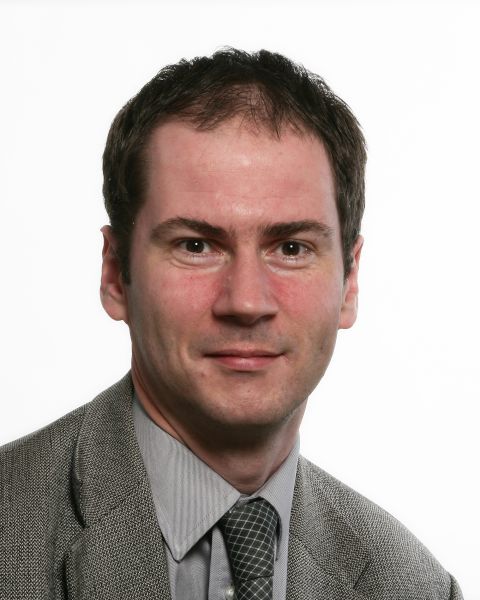Michael Rutter

Dr Michael Rutter
Computer Officer
Member of Queens' College
Office: C3.064
Phone: +44(0)1223 3 37386
Email: mjr19 @ cam.ac.uk
Personal web site
TCM Group, Cavendish Laboratory
Ray Dolby Centre,
JJ Thomson Avenue,
Cambridge, CB3 0US UK.
Research
Michael Rutter is the Computer Officer of the Theory of Condensed Matter Group, and is responsible for its research IT infrastructure and policies, and for providing IT assistance to its researchers. He has been associated with the Group for over twenty-five years, first joining it as a PhD student, then taking two positions elsewhere before rejoining it as its Computer Officer. He is both a Chartered Physicist and a Chartered IT Professional, and is a Fellow of the British Computer Society.
Hardware supported includes around 65 desktops, several servers, a cluster, printers from A4 to A0, and their associated network infrastructure. Software support includes basic programming staples such as multiple C, C++ and Fortran compilers, MPI and NAG, and also commercial packages such as Matlab and Mathematica. User support includes C, Fortran, MPI, OpenMP, PostScript, python, x86_64 assembler, tuning and much else.
He is the author and maintainer of a varied collection of scientific and more general software, including c2x, bmp2eps and various others. He also maintains some notes on topics including the Castep (a Density Functional Theory code developed in TCM), Linpack, 1D quadrature and sorting routines.
Besides giving seminars in TCM, he has also given courses for the MPhil in Scientific Computing run by the Centre for Scientific Computing. He worked for a year with the Cambridge High Performance Computing Facility before rejoining TCM as its Computer Officer, so he has long experience of parallel programming.
In Plain English
In the 21st century, most Physicists rely on computers to keep them at the forefront of their fields, whether they need them to analyse data, simulate experiments, or solve equations.
The right sort of computational environment for such work is not the same as that required for standard office applications. Thus a specialist Computer Officer with a background in Computational Physics can be of considerable benefit in helping researchers concentrate on their work supported by suitable advice, software and hardware.
Featured Publications
- Pseudopotential contributions to the quadrupole moment in charged periodic systems Phys. Rev. B 107 075133 (2023) and arXiv
- Charged surfaces and slabs in periodic boundary conditions Electronic Structure 3 015002 (2021)
- C2x: a tool for visualisation and input preparation for Castep and other electronic structure codes Comp. Phys. Comm. 225 174 - 179 (2018)
- Ab initio calculation of electron affinities of diamond surfaces Phys. Rev. B 57 9241 - 9245 (1998)
- Band diagram of diamond and diamond-like carbon surfaces Diam. Relat. Mater. 7 620 - 625 (1998)
- Energetics of stacking boundaries on the {0001} surfaces of silicon carbide J. Phys. - Condens. Mat. 9 8213 - 8220 (1997)
- Phonon free energy and devil's staircases in the origin of polytypes J. Phys. - Condens. Mat. 9 2009 - 2024 (1997)